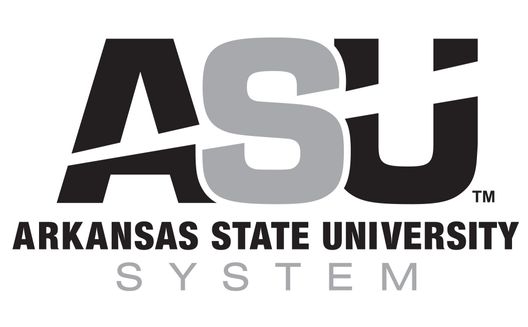No tuition or fee raises in the ASU system next year; seven athletes test positive for COVID-19
by June 4, 2020 2:09 pm 649 views

The COVID-19 pandemic radically changed how Arkansas State University system delivered its spring semester to students, but there will be no change to the amount of money students will pay to attend the state’s second largest university this coming fall.
Institutions in the system will not raise tuition and fees for students this fall, while reducing budgeted expenses by almost $14 million, or 5%, in anticipation of lower state revenue and possible enrollment losses.
The ASU System Board of Trustees voted Thursday (June 4) in a videoconference meeting to approve the $279.8 million system budget, which system President Chuck Welch said is very conservative and cautious during unprecedented times resulting from the COVID-19 pandemic. This fall will be the second time in three years that ASU System institutions have not increased tuition rates.
“The situation we face today is why we work so hard to build and maintain healthy, financially stable institutions,” Welch said. “We’ve chosen to make difficult spending decisions rather than use reserve funds. We spared our faculty and staff from salary cuts and furloughs, and we kept tuition and fees steady for students and parents facing financial uncertainty.”
Welch said the spending cuts, while appropriate and necessary this year, would not be sustainable. Institutions will put on hold capital projects and also scale back deferred maintenance projects, professional development and travel. Hiring freezes will also be in place, he added.
“While we budgeted for lower enrollment to be conservative, our campuses will be working tirelessly to recruit traditional students and adults who want to pursue more education and training for new job opportunities,” Welch said. “Adults who have a two-year, four-year or professional degrees continue to fare much better in the job market.”
The ASU System opted not to budget state funds appropriated in categories C and D in the Revenue Stabilization Act, he said, also noting that federal CARES Act funding was helpful, but did not make up for state budget cuts.
Arkansas State University in Jonesboro budgeted $203.5 million, a decrease of $5.9 million, or 2.9%, with expectations of a $5.2 million decline in state revenue and a $6.2 million drop in tuition and fees. The largest cuts are by ASU-Beebe, a $1.9 million, or 7%, reduction to $27 million, and ASU-Newport, a $1.4 million, or 8.3%, reduction to $16.9 million. While no institution will provide overall merit or cost of living raises, some will provide additional pay for faculty promotions and all will comply with the state-mandated minimum wage increase for certain classified employees.
Welch noted that seven student-athletes across three sports tested positive for COVID-19 upon returning to the ASU campus and have been quarantined. He said all athletes are being tested as they return this summer, and testing and contract tracing plans for the fall semester are being finalized.
“We’re working closely with state officials and health officials at the local level as to how everything will work,” he added. “It’s inevitable we will have positive tests. We have available testing and protocols and will significantly expand it by the fall semester. Each campus is addressing issues on a regular basis and preparing a number of contingency plans for any unexpected occurrences. We are addressing COVID-19 in a very proactive manner. It’s a difficult time and everyone is working very hard to handle.”
Gov. Asa Hutchinson commented on the cases at his Thursday (June 4) press conference.
“I think the reality is, that is not a surprise. You have athletes, and of course you’ve got to recognize this is a fairly large number of athletes that will be coming back for training and they’re coming from different cities across the country. And they come in and we have seven positives. That, I think, is going to be expected across multiple campuses across the state and the universities are prepared to address that and deal with that,” he said.
In other business, the board approved:
• The system’s request to borrow up to $5.3 million to develop and implement the Enterprise Resource Planning system for all member institutions. The effort to consolidate the system into a single ERP system provides the opportunity to access shared services, facilitate cooperative buying and increase collaboration.
• An ASU-Beebe plan for a Memorandum of Understanding to create a new academic training partnership with Altec Industries, a supplier of products and services for the electric utility and telecommunication industries.
• Members to serve on the Board of Visitors at ASU-Beebe (Hazel Dickey, Dianne Logan and Butch Rice), ASU-Mountain Home (Cheryl Davenport, Sonny Elliott and Ron Peterson) and ASU-Newport (Tuesday Gaddis and Natalie Shew).
• Resolutions for A-State to name the Alex Carrington and Bryan Hall Defensive Line Room in the Centennial Bank Athletic Operations Center and the Tommy Vaughan Men’s Track and Field Locker Room for their contributions to the football and track programs.
